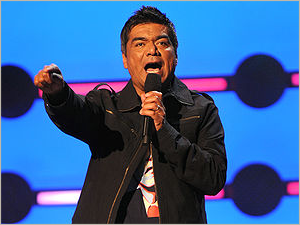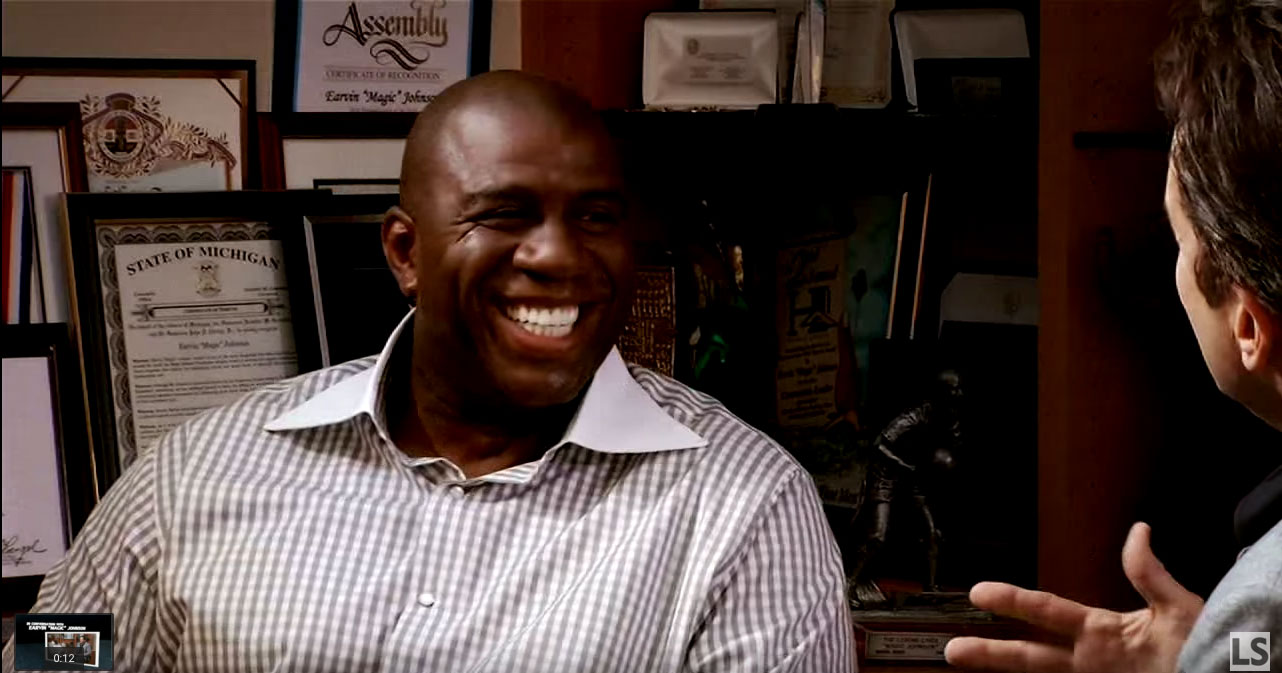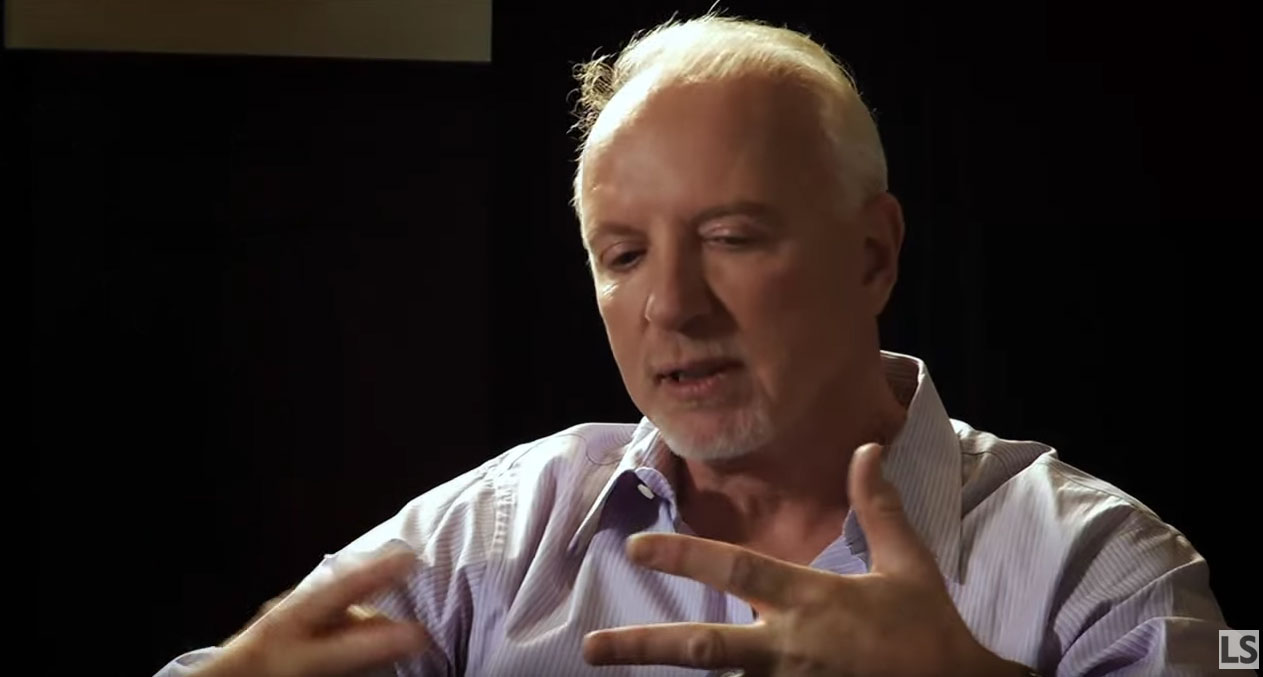Early in George Lopez’s career as a comedian, he got a rude awakening. After a show where he’d performed a standup routine that borrowed in attitude from popular comedians like Richard Pryor and George Carlin, a critic said to him, “you’re trying to stir the pot, but it’s not your pot. Nothing that you’re saying is yours.” That kick struck a spark that turned into a bonfire for Lopez.
 Lopez realized his problem was finding his center. In the quiet of his home one Christmas he revealed to me, “My center was my grandmother who raised me.” His grandmother, though was no angel. “When the Northridge earthquake happened, we had very little damage to our house, and yet my grandmother was at the church every day getting free food. It just didn’t seem right to me.” Worse yet, when George questioned his grandmother about taking the food that other people needed more, she rebuked him, “What’s it matter? Nobody’s watching.”
Lopez realized his problem was finding his center. In the quiet of his home one Christmas he revealed to me, “My center was my grandmother who raised me.” His grandmother, though was no angel. “When the Northridge earthquake happened, we had very little damage to our house, and yet my grandmother was at the church every day getting free food. It just didn’t seem right to me.” Worse yet, when George questioned his grandmother about taking the food that other people needed more, she rebuked him, “What’s it matter? Nobody’s watching.”
With this incident, George recognized that humor feeds on the paradoxes of life, so he decided to tell the story about his grandmother, first in his stand-up, later on his television shows, and eventually through his charities. He also told other stories he’d witnessed in his community growing up. Nothing was fabricated. “We hit our women and we buy them sunglasses,” he’d say. “We drink and then order the kids around and can’t remember the next day how we treated the kids at night.”
“It’s an economic thing and it’s a world thing,” George told me. “When I sold out at Radio City Music Hall for the first time, I told these authentic stories to the most diverse audience, and they all got it.”


